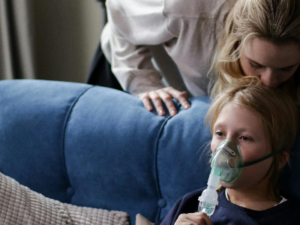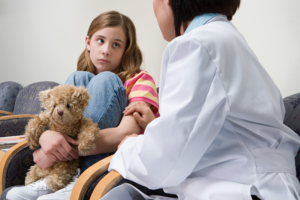Home nebulization therapy is a convenient and effective way to manage respiratory conditions, particularly for children, the elderly, and patients with chronic illnesses. By delivering medication directly to the affected area, nebulization provides quick relief while minimizing side effects. However, it is not suitable for every situation. This article provides a detailed explanation of when and how to use home nebulization therapy effectively.
Situations Suitable for Home Nebulization Therapy
Case Study:
Eight-year-old Xiao Ming has asthma and often experiences severe coughing and wheezing during seasonal changes or weather fluctuations. His parents found frequent hospital visits exhausting. On a doctor’s advice, they purchased a nebulizer for home use. By regularly nebulizing anti-inflammatory medications, Xiao Ming's asthma was well-managed. He could attend school and participate in outdoor activities without fear of frequent attacks.
Home nebulization is commonly used for the following respiratory conditions:
- Chronic Bronchitis
Patients suffering from persistent cough and shortness of breath, especially during seasonal changes, can benefit from nebulization to alleviate airway spasms and inflammation. - Childhood Asthma
Nebulized corticosteroids or bronchodilators can effectively control asthma attacks at home. - Allergic Rhinitis
Patients with seasonal or perennial rhinitis can use nebulized antihistamines to relieve nasal congestion, runny nose, and sneezing. - Respiratory Infections
Nebulization can help dilute mucus and clear the airways in cases of cough and phlegm caused by colds or bronchial infections. - Recovery from Pneumonia
Patients in the recovery phase of pneumonia can use nebulization to address residual mucus and minor inflammation. - Post-Surgical Airway Care
Patients recovering from respiratory surgeries can use nebulization to reduce the risk of infections and promote healing.
When Home Nebulization Therapy Is Not Suitable
- Acute Pneumothorax or Severe Airway Obstruction
These conditions require emergency hospital care, as nebulization alone is insufficient. - Medication Allergies
Patients with known allergies to nebulized medications should avoid use to prevent severe reactions. - Severe Heart or Lung Dysfunction
Patients with advanced heart failure or respiratory failure should consult a doctor to determine if nebulization is appropriate. - Improper Use Without Guidance
Incorrect operation can result in reduced efficacy or equipment contamination, potentially causing secondary infections.
Tips for Using a Nebulizer at Home
- Choose Professional Equipment
Select a nebulizer based on your doctor’s recommendation, ensuring particle sizes range between 1-5 microns. - Follow Medical Instructions Strictly
Do not adjust the dosage, especially for steroid medications, to avoid side effects. - Maintain Equipment Hygiene
Clean and disinfect the nebulizer after each use, paying special attention to masks and tubing. - Create a Suitable Environment
Perform nebulization in a well-ventilated room to avoid overly humid conditions. - Monitor for Reactions
If symptoms such as dizziness, palpitations, or worsened coughing occur, stop immediately and consult a doctor.
Frequently Asked Questions (FAQ)
1. Can nebulization therapy cause dependency?
No. Nebulization is a physical treatment and does not lead to dependency when used as prescribed.
2. Can nebulization replace all medications?
No. Nebulization is an adjunct therapy, and severe conditions may still require oral or injectable medications.
3. Why do children cry during nebulization?
Children may feel uncomfortable with the mask. Parents can demonstrate its use or choose child-friendly masks to ease anxiety.
4. How long should I wait to eat after nebulization?
Wait at least 30 minutes to allow the medication to be fully absorbed.
5. How often should I replace my nebulizer?
Most nebulizers need replacement every 6-12 months, with regular changes to tubing and masks.
References
- Guidelines of the Pediatric Respiratory Group, Chinese Medical Association: Standard recommendations for nebulization therapy in children.
- World Health Organization (WHO) Guidelines on Respiratory Disease Management: Authoritative insights on global nebulization practices.
- PubMed Clinical Studies: Latest research on nebulization therapy’s effectiveness.
- Chinese CDC Health Guidelines: Detailed instructions on using home nebulization devices.
- UpToDate Medical Database: A trusted resource for clinical decision-making.
- Practical Home Medical Guide: Guidance on the correct operation and precautions for nebulizers.













